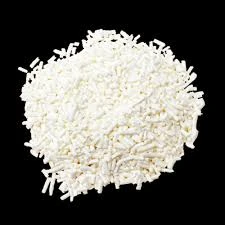
sodium metabisulfite factory
Understanding the Sodium Metabisulfite Industry A Key Player in Chemical Manufacturing
Sodium metabisulfite, a white crystalline powder with the chemical formula Na2S2O5, is a vital compound used in various industries, including food processing, water treatment, and textile manufacturing. As a critical player in the chemical manufacturing sector, sodium metabisulfite factories are vital for meeting the demand for this versatile compound.
Production Process
The production of sodium metabisulfite typically occurs through the reaction of sodium sulfite with sulfur dioxide or by roasting sodium bisulfite in a controlled environment. The manufacturing process requires careful attention to temperature and pressure to ensure the quality and purity of the end product. Factories engaged in this production often utilize advanced technology and equipment to maintain high standards and optimize efficiency.
Quality control is paramount in sodium metabisulfite manufacturing. Factories implement rigorous testing protocols to ensure that each batch meets regulatory standards and customer specifications. This involves chemical analysis to confirm the concentration of active ingredients and the absence of contaminants that could affect usability in various applications.
Applications of Sodium Metabisulfite
Sodium metabisulfite plays a multifaceted role in many industries
1. Food and Beverage Industry It acts as a preservative, antioxidant, and bleaching agent. In winemaking, for instance, sodium metabisulfite is utilized to mitigate oxidation and prevent microbial growth, ensuring the quality and longevity of the final product. The food industry also uses it to maintain the color and freshness of fruits and vegetables.
2. Water Treatment In water purification processes, sodium metabisulfite is effective in removing chlorine and other harmful substances, making it an essential chemical for potable water systems. Its ability to reduce chlorine levels helps to create safer drinking water and support environmental sustainability initiatives.
3. Textile Industry Sodium metabisulfite serves as a reducing agent in dyeing processes. It helps in the bleaching and color fixation of fibers, contributing to the production of vibrant textiles. Furthermore, its ability to scavenge oxygen enhances the overall quality of textile products.
sodium metabisulfite factory

4. Pharmaceuticals and Cosmetics The compound finds its applications in the pharmaceutical sector as an antioxidant and stabilizer. Additionally, it is integral in cosmetics for preserving formulations and enhancing their shelf life.
Economic Impact
Sodium metabisulfite factories significantly contribute to economic growth, providing numerous jobs and supporting local economies. The demand for sodium metabisulfite is increasing, primarily driven by growth in end-use industries such as food and beverage, water treatment, and textiles. Factors such as the expansion of the global food supply chain and increasing awareness of water quality issues further augment the market potential for sodium metabisulfite producers.
Investments in this industry can enhance production capabilities and promote research and development initiatives, opening up new applications and markets for sodium metabisulfite. As sustainability becomes a priority, factories are also exploring greener production methods and optimizing processes to reduce environmental impact.
Challenges and Regulations
Despite its wide-ranging applications, the production and use of sodium metabisulfite are associated with specific challenges and regulatory considerations. There are health and safety concerns related to its handling, as it can release sulfur dioxide—a potentially harmful gas under certain conditions. Consequently, factories must adhere to stringent occupational safety guidelines and environmental regulations to mitigate risks.
Furthermore, growing consumer demand for organic and natural products poses a challenge to traditional chemical manufacturing. Sodium metabisulfite producers need to innovate continuously and adapt their offerings to align with consumer preferences while ensuring product safety and efficacy.
Conclusion
Sodium metabisulfite factories play a pivotal role in the chemical manufacturing landscape, providing essential products that support various industries. As the demand for sodium metabisulfite continues to grow, careful consideration of production practices, regulatory compliance, and sustainability will be crucial for the industry's future. By addressing these factors, sodium metabisulfite manufacturers can thrive while contributing positively to the global economy and society.
-
Water Treatment Chemicals for Industrial ProcessesNewsAug.07,2025
-
Unlocking the Secrets of Ammonium Bicarbonate in Traditional BakingNewsAug.07,2025
-
Monosodium Glutamate Seasoning for Stock EnhancementNewsAug.07,2025
-
Enhancing Dimethyl Disulfide Solubility with Green SolventsNewsAug.07,2025
-
Aspartame Safety: Current Research and RegulationsNewsAug.07,2025
-
Aluminum Hydroxide Antacid and Nutrient Absorption ImpactNewsAug.07,2025
-
1,2,3-Benzotriazole: The Unsung Hero of Industrial Chemical InnovationNewsAug.07,2025
Hebei Tenger Chemical Technology Co., Ltd. focuses on the chemical industry and is committed to the export service of chemical raw materials.
-

view more DiethanolisopropanolamineIn the ever-growing field of chemical solutions, diethanolisopropanolamine (DEIPA) stands out as a versatile and important compound. Due to its unique chemical structure and properties, DEIPA is of interest to various industries including construction, personal care, and agriculture. -

view more TriisopropanolamineTriisopropanolamine (TIPA) alkanol amine substance, is a kind of alcohol amine compound with amino and alcohol hydroxyl, and because of its molecules contains both amino and hydroxyl. -

view more Tetramethyl Thiuram DisulfideTetramethyl thiuram disulfide, also known as TMTD, is a white to light-yellow powder with a distinct sulfur-like odor. It is soluble in organic solvents such as benzene, acetone, and ethyl acetate, making it highly versatile for use in different formulations. TMTD is known for its excellent vulcanization acceleration properties, which makes it a key ingredient in the production of rubber products. Additionally, it acts as an effective fungicide and bactericide, making it valuable in agricultural applications. Its high purity and stability ensure consistent performance, making it a preferred choice for manufacturers across various industries.











